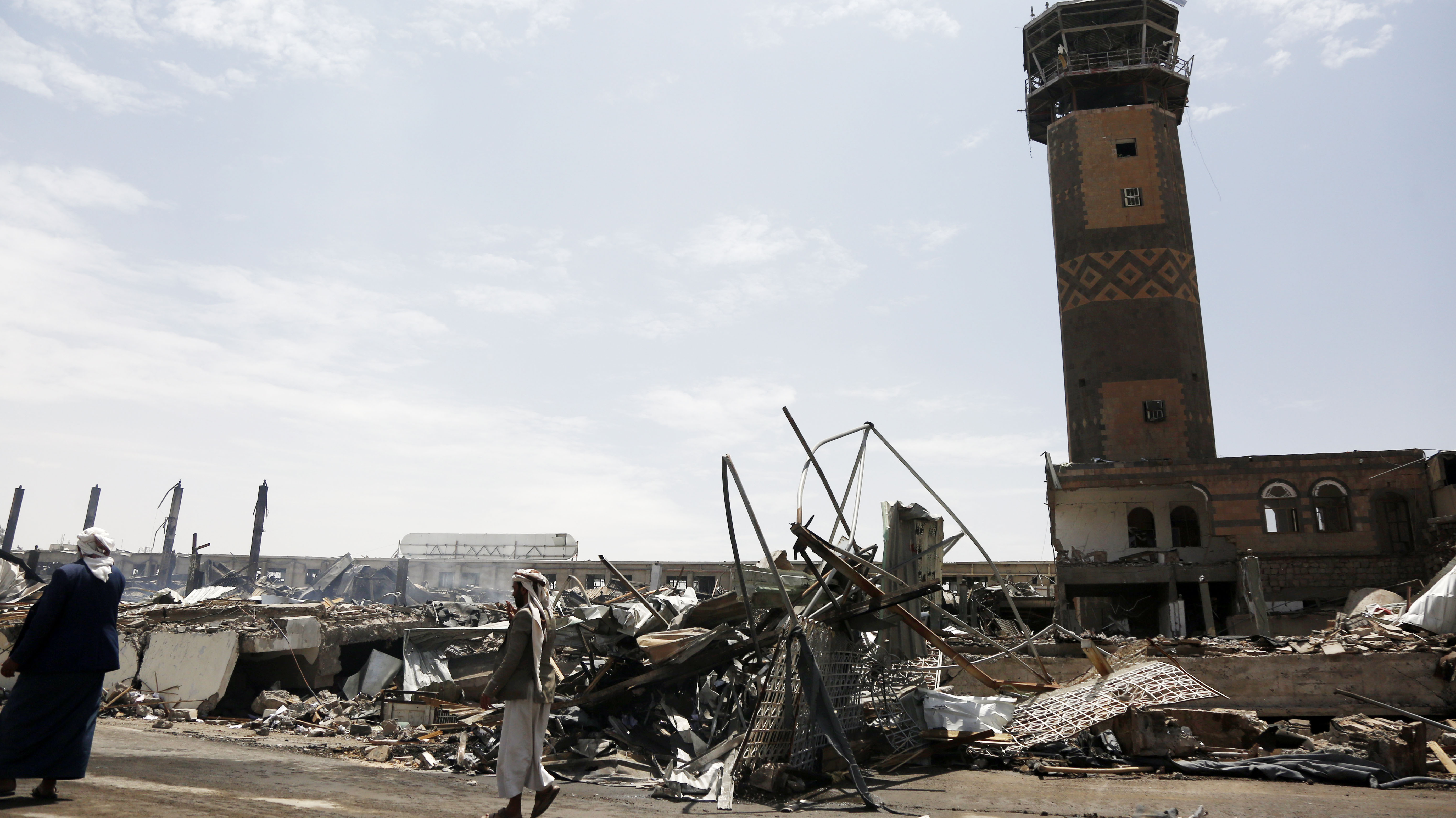(LONDON) — The Israel Defense Forces issued evacuation warnings for three ports in Houthi-controlled Yemen after intercepting two of three ballistic missiles fired by the Iran-backed group in the past 24 hours. The IDF said one Houthi missile misfired on Tuesday.
The IDF said in a post to X that the third missile launched toward Israel on Wednesday was intercepted just before 8 a.m. local time. Air raid sirens rang out from Jerusalem to Tel Aviv, sending several million Israelis rushing for cover. About two hours later, IDF spokesperson Avichay Adraee ordered those present at the Red Sea ports of Ras Isa, al-Hudaydah and al-Salif to evacuate the area.
“Due to the terrorist Houthi regime’s use of seaports for its terrorist activities, we urge all those present at these ports to evacuate and stay away from them for your own safety until further notice,” Adraee wrote in a post to X.
The IDF routinely issues such evacuation orders ahead of planned airstrikes. The IDF’s first such warning for Yemen was issued on May 6, before Israeli strikes on the Sanaa International Airport in the Yemeni capital.
The spate of Houthi missile attacks came as Israeli Prime Minister Benjamin Netanyahu said Israeli forces would enter Gaza with “full force” in the coming days. Last week, Netanyahu’s security cabinet approved plans to expand the IDF’s war against Hamas in Gaza.
Netanyahu said Wednesday that intensified military action is required “to accomplish all of Israel’s war goals, including the release of all our hostages, destroy Hamas’s military and governance capabilities and ensure that Gaza will never again pose a threat to Israel.”
The Houthis have been attacking U.S. military and global commercial shipping and launching drones and missiles toward Israel since Hamas’ deadly surprise attack on Israel in October 2023. The Houthis say their attacks are a protest of Israel’s war against Hamas in Gaza.
Last week, the Houthis agreed to end attacks on American commercial shipping in the region in exchange for an end to the intense U.S. airstrikes against them, a campaign President Donald Trump began in March. The Houthis have clarified that this agreement struck with the U.S. does not include stopping its attacks on Israel.
Trump announced the agreement on May 6. Over the next two days, the Houthis launched an attack drone and a ballistic missile toward Israel, both of which the IDF said were intercepted.
While traveling to Saudi Arabia to begin a tour of Gulf nations on Monday, Trump told Fox News host Sean Hannity of the Houthis, “You know, they’re tough fighters. They can take a lot of punishment.” Asked if the ceasefire would hold, he responded, “With respect to America, they say it’s true. We’ll see.”
The Houthis have vowed to continue attacks on Israel until it ends its operation in Gaza and the blockade of humanitarian aid into the strip. The Israeli war on Hamas began after the terror group’s Oct. 7, 2023, attack on southern Israel.
The attack killed nearly 1,200 people in Israel with 253 others abducted as hostages, the Israeli government said. Fifty-seven hostages remain in Gaza, including 20 who are believed to be alive.
IDF soldier Edan Alexander — the last living U.S. citizen being held hostage in Gaza — was freed on Monday after direct talks between Hamas and the Trump administration. U.S. officials told ABC News that Alexander’s release was viewed as a goodwill gesture toward the Trump administration and a potential opening to jumpstart talks on a Gaza ceasefire.
After Netanyahu met top U.S. officials in Israel Monday ahead of Alexander’s release, the Israeli leader announced he would send an Israeli negotiating team to Doha, Qatar, for ceasefire talks. Indirect talks with Hamas entered their second day on Wednesday.
But Netanyahu said Tuesday that any new ceasefire deal reached — for example to facilitate the release of more living hostages — would be temporary. “There will be no way we will stop the war,” Netanyahu said. “We can make a ceasefire for a certain period of time, but we’re going to the end.” Netanyahu has repeatedly said that Hamas cannot remain in power in the Mediterranean exclave.
Also on Tuesday, a series of airstrikes targeted the European Hospital near Khan Younis in the southern Gaza Strip. Mohammad Sinwar — the leader of Hamas in Gaza and the brother of former leader Yahya Sinwar, who was killed by the IDF in October — was the target, an Israeli source familiar with the matter told ABC News.
The IDF has not confirmed Mohammed Sinwar was the target and it is not yet clear whether he was killed in the attack. Gaza’s Hamas-run Ministry of Health said that at least six people were killed and 40 others were wounded in the strike.
The IDF claimed its “precise strike” targeted “Hamas terrorists in a command and control center located in an underground terrorist infrastructure site beneath the European hospital.”
The IDF routinely alleges that Hamas uses civilian infrastructure, including hospitals, for military activities — allegations Hamas denies.
The Hamas-run Ministry of Health in Gaza said Wednesday that at least 70 people were killed and dozens injured in overnight Israelis strikes on various targets across the strip.
At least 50 people — including 22 children — were killed by Israeli attacks on houses in the Jabalia refugee camp in the northern part of the strip, the ministry said, citing local hospital officials.
The total death toll in Gaza since Oct. 7, 2023, now stands at 52,928 people, according to the Ministry of Health, with another 119,846 people injured. The ministry does not differentiate between civilian and combatant dead.
Copyright © 2025, ABC Audio. All rights reserved.















